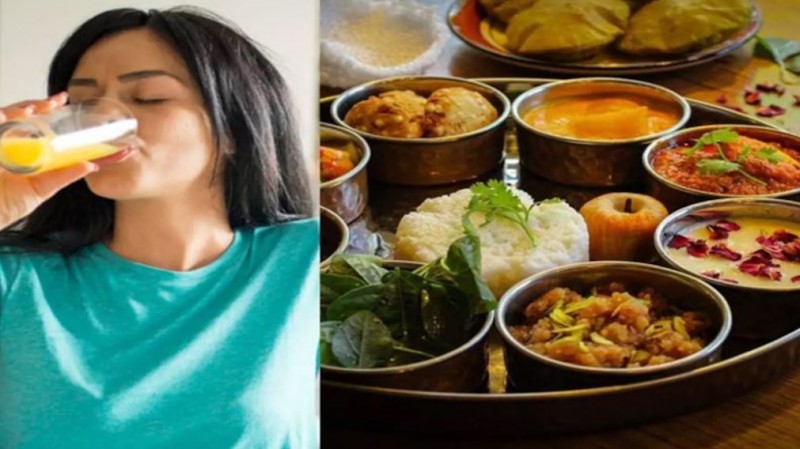
Navratri, a festival celebrated with great fervor across India, holds significant cultural and religious importance. It spans nine days of worship dedicated to Goddess Durga and involves various rituals, including fasting. While fasting during Navratri is a common practice, it poses unique challenges for individuals with diabetes. Managing blood sugar levels becomes crucial during this period to ensure both spiritual adherence and health preservation. In this comprehensive guide, we delve into the intricacies of maintaining diabetic health during Navratri fasting, covering essential aspects and offering practical tips for diabetic patients to observe the fast safely.
Consultation with Healthcare Provider:
One of the fundamental steps for diabetic patients considering Navratri fasting is to seek guidance from their healthcare provider. Individuals with diabetes often have different medical requirements, including insulin dosages and medication schedules. Fasting without proper medical supervision can lead to drastic fluctuations in blood sugar levels, posing risks such as hypoglycemia or hyperglycemia. Therefore, it is imperative to consult a healthcare provider to assess one's health status, review medication regimens, and receive personalized advice tailored to individual needs.
Understanding the Role of Buckwheat Flour:
Navratri fasting typically involves abstaining from regular grains and consuming alternative flours. Buckwheat flour, commonly known as kuttu ka atta, is a popular choice during this period. Unlike wheat flour, buckwheat flour is low in glycemic index (GI) carbs, meaning it causes a slower and more gradual increase in blood sugar levels after consumption. Incorporating buckwheat flour-based dishes such as parathas, puris, and pancakes can help diabetic patients manage their blood sugar levels more effectively while fulfilling their fasting requirements.
Hydration Management:
Dehydration is a common concern during fasting periods, particularly for diabetic patients who may experience fluctuations in blood sugar levels. Adequate hydration is essential for maintaining overall health and preventing complications. Diabetic patients observing Navratri fasting should prioritize hydration by consuming ample fluids throughout the day. Optimal choices include water, coconut water, herbal teas, and buttermilk, which not only help prevent dehydration but also contribute to stabilizing blood sugar levels.
Incorporating Probiotics:
Probiotics, often found in fermented dairy products like yogurt and buttermilk, play a crucial role in gut health and overall well-being. Diabetic patients observing Navratri fasting can benefit from including probiotic-rich foods in their diet. Consuming yogurt or buttermilk as part of the meal plan can aid in digestion, prevent gastrointestinal discomfort, and promote a healthy balance of gut bacteria. Additionally, incorporating low-fat dairy proteins like paneer (cottage cheese) can provide essential nutrients while keeping blood sugar levels in check.
Opting for Sugar-Free Alternatives:
Breaking the fast with sugar-free drinks and snacks is essential for diabetic patients to prevent sudden spikes in blood sugar levels. Instead of traditional sugary beverages and sweets, diabetic individuals can choose from a variety of sugar-free options available in the market. Sugar-free drinks, desserts, and snacks provide the sweetness without the added calories or adverse effects on blood glucose levels. Prioritizing sugar-free alternatives ensures that diabetic patients can enjoy the festive spirit of Navratri while maintaining optimal health.
Common Fasting Mistakes to Avoid:
While observing Navratri fasting, diabetic patients should be mindful of certain common mistakes that can adversely affect their health. These include prolonged fasting periods, excessive consumption of tea or coffee, irregular medication intake, indulgence in fried or high-fat foods, neglecting pre-fasting meals, and overlooking medical advice. By avoiding these pitfalls and adhering to a well-planned fasting regimen, diabetic individuals can safeguard their health and effectively manage their condition during Navratri.
Navratri fasting holds profound cultural and spiritual significance for millions of people worldwide. For diabetic patients, navigating through this period requires careful planning, monitoring, and adherence to medical advice. By consulting healthcare providers, making informed dietary choices, prioritizing hydration, incorporating probiotics, opting for sugar-free alternatives, and avoiding common fasting mistakes, diabetic individuals can successfully observe Navratri fasting while safeguarding their health. With a balanced approach that considers both spiritual beliefs and medical needs, diabetic patients can experience the joy of Navratri while ensuring their well-being remains paramount.
Hands are the mirror of health, bulging veins give warning, know the reason and treatment
Be careful... Cancer is increasing rapidly among youth, more than 15 lakh cases every year!
Cancer is increasing rapidly among youth, more than 15 lakh cases every year! be alert immediately